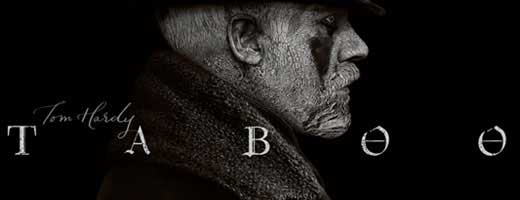True Detective: Father-Daughter Relationships

Have a Theory? Share It Now!
Listening to your podcast has made me enjoy season 3 of True Detective even more. It has stimulated me to think deeper, but without getting too caught up in tinfoil. Thank you for a great podcast.
The season finale was a bit too feel-good for me at some points, I could have used some more beautiful pain and terror and darkness. But what made me feel okay anyway, is one particular detail: Julie Purcell vs. Becca Hays. We were kept in the dark about Becca Hays, we were left to develop all kinds of crazy things about what happened with her. All the while we were getting more and more on Julie Purcell. In episode 7 we get a little glimpse, so we at least know she didn’t die or something crazy. But the ending really revealed the larger perspective. The entire season has been so fixated on Julie; when our old buddies Hays and West find the tomb stone of Mary July, they even speak directly to her (not knowing it’s a fake tombstone). When Hays finally finds Julie, his dementia ruins it all with a blackout. But this leads to the final scene of him connecting with Becca in the car. All the focus on Julie throughout the season, all the fixation on this lost white girl Hays never even knew – it was a displacement of his real feelings about his relationship with his own daughter. This is what the story has been about all along. Father-daughter relationships are hard, especially for traumatized veterans. We know all about Wayne’s struggles in his marriage, so it’s safe to assume he also struggled in his relationship with his daughter. We see her while she is still little, and Wayne’s panic attack about losing her, and then she disappears from the show until that little glimpse in episode 7. It’s because when she became a teenager, it really stirred up things for Hays. It pushed all his buttons that his little baby girl became a woman, and he likely withdrew and didn’t know how to handle it. He was so afraid of losing her when she was a little girl (as all parents are, the fear of your child getting hurt is greater than anything), so he almost lost her emotionally when she became a teenager. That’s why he asks her (adult Becca) in the car if he lost her. The feel-good we get is that he DIDN’T lose her; she is still there. But it was probably close at one point.
We think the whole story was about Julie Purcell, but it was really about Becca, and a father’s relationship with his daughter. Pizzolato clearly has a big place in his heart for the archetypal father-daughter relationship. Many psychoanalytic (Jungian) theories address this – that the father-daughter relationship (as well as the mother-son relationship) strikes the core of struggles as human being (and on a side note, what’s missing is really Amelia’s relationship to Henry).
Amazing twist that Julie Purcell didn’t get discovered, because that was kinda irrelevant. Hays’ fixation on the case all those years was a was of displacement of what was really going on inside him: his relationship to himself, his mother, his wife, his daughter, his anima and feminine sides.
Best,
Helena Vissing, Psy.D.
Subscribe Now
- Android: https://shatontv.com/true-detective-android
- Apple/iTunes: https://shatontv.com/true-detective-itunes
Help Support the Podcast
- Support with Paypal – https://shatontv.com/paypal
- Support With Venmo – https://venmo.com/ShatPodcasts
- Shop / Merchandise: https://shatontv.com/shop
- Shop Amazon With Our Affiliate Link – https://www.amazon.com/?tag=shatmovies-20
- Sponsor’s Listener Survey – https://shatontv.com/survey
- Leave an iTunes Review – https://shatontv.com/true-detective-review
- Leave a Voicemail – (914) 719-SHAT – (914) 719-7428
- Feeds & Social Media – https://shatontv.com/subscribe-and-follow/
- Checkout our Movie Podcast – http://shatthemovies.com






